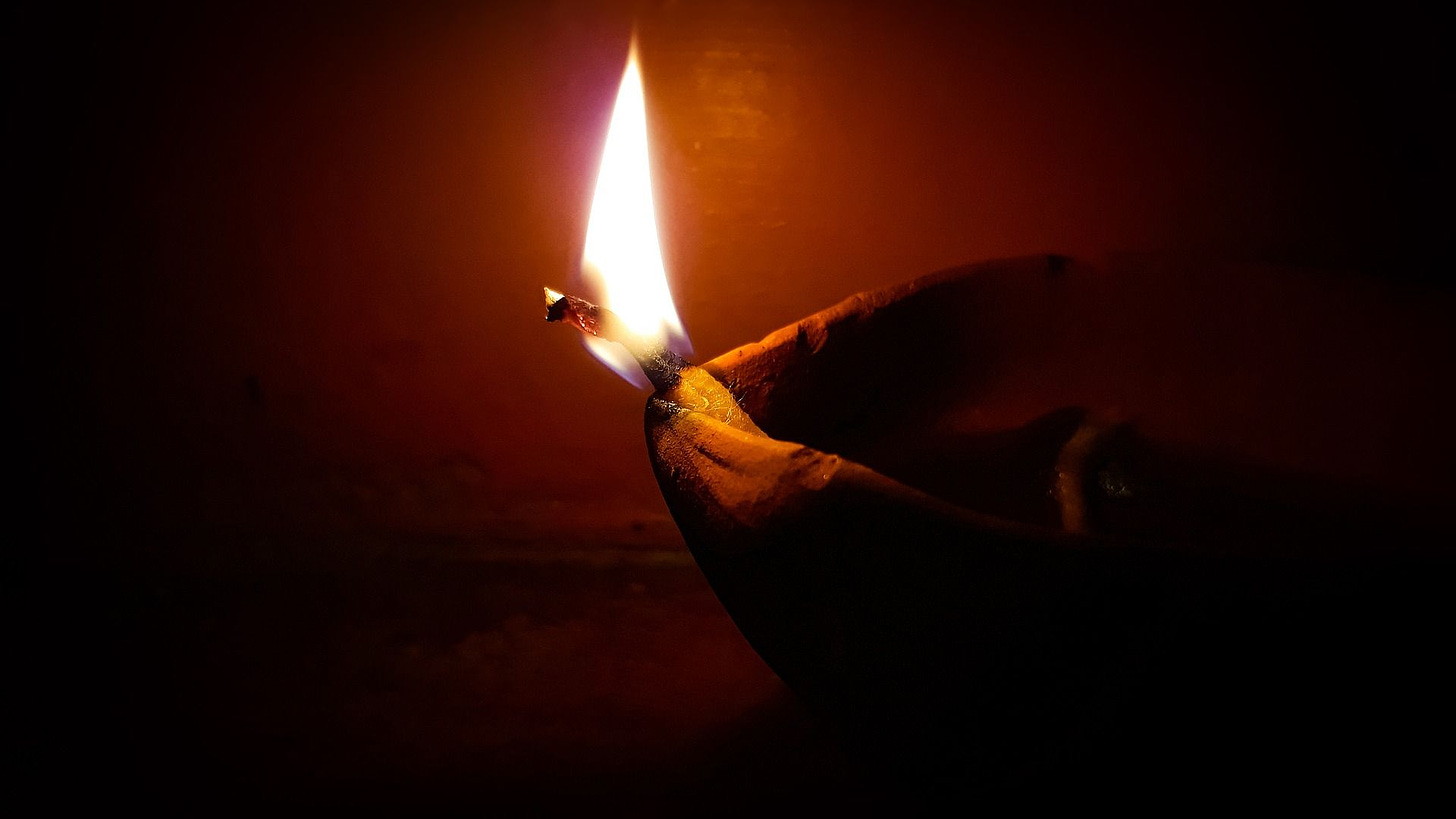Importance of Diwali

Today is Diwali. Let us look at the Importance of Diwali.
It is by far the most celebrated of the Hindu festivals in the country. It is the celebrated as the event when Lord Ram came back to his Kingdom after 14 years of exile, after winning against the demon king Ravan. So, in that sense, it is a reminder of the victory of light over darkness. Read Vijay Dashami: Ram’s war was NOT against Ravan, but FOR Sita. It is a celebration. As Sadhguru says:
The idea of Diwali is to bring that aspect of celebration into your life – that is why the fire crackers, to set fire to you a bit! So the purpose is not just to have fun on this one day and go. It must happen like this within us every day. If we simply sit, our life energy, heart, mind and body must be exploding like a live cracker.
On this day, I would like to remember a Ram that has inspired me in the last few years. The Ram of Yoga Vasistha. In that book, Ram is taught by his Guru of what the truth of creation is. And in that discussion, Ram, who is 16, explains the principles of attachment and detachment with a maturity of sages. He is also not afraid to drill his own Guru when he sees seemingly conflicting messages.
Similarly, the Guru (Vasistha) also does not spare him any admonition when he feels Ram is not getting the point. The frank-ness and the profound-ness of the dialog is eye-opening and intriguing.
That Ram, was a Ram who had grown detached to the world and saw the world as illusion or as a play as it was. A lot of what goes on in Ramayana can be understood much easily when we have that backdrop. The conflicts of morality – which is what some use when they critique some of his actions in Ramayana.
Now, there is another Ram. The Ram of Kabir, of Guru Nanak Dev, of the Bhakti yogis, the Ram, who inspired an entire generation of Yogis and Saints. It is another matter that now, some of their followers would not want much to do with their Guru’s Guru, but Ram was the original inspiration. So, what was it about that Ram which inspired such an august society of souls?
Again, the answer is in Yoga Vasistha.
Krishna and Ram are indeed two expressions of detached yet “engaged” living. And in very contrasting manners.
Krishna helped articulate Vasistha’s message again, and urged people to stop taking Vedas literally and to start understanding the CORE of the Vedas and in that message of Gita inspired an entire generation of Rishis and Maharishis to share their profound thoughts in what came to be known as Upanishads.
Krishna’s Gita was the critically important bridge between the Vedas and the Upanishads! So inspired were the Rishis that in some places they used the expressions from Gita verbatim!
Ram on the other hand, lived that teaching within the scope of a married man with family. He did not ostensibly do the best job for all the relationships in His life as many would argue, but then can anyone? To evaluate the priorities of Ram and argue is to engage in questioning how could Infinite give birth to the Finite or how could a “soul” separate from the Universal Consciousness? All these questions make sense ONLY in the realm of causality… outside of it, where there are no relationships, they make NO sense!!
Another thing, that I wanted to mention, was that in a way, Krishna and Ram, both demonstrated the Strengths and the Weaknesses of the human existence. Given their message and understanding of the Truth, as they both understood and explained, it is clear that they both subscribed to the idea of Truth as encompassing what normal mortals call “Good” and the “Evil”. So, in their eyes, both the characteristics were an essential nature of the Creation. The adjectives to particular events/characters are given by the observer not the originator.
Some how, however, an entire industry was created out of a flawed concept of Divinity or Holiness. It has come about as a property so fragile and effervescent that any interaction with anything “different” or euphemistically called unholy.. can break the entire halo of holiness in to smithreens – and which we somehow keep prodding ourselves to “protect”!!
It is indeed a wonder that we still continue to call the bearer of this property as “Omnipotent”!
So, on this day, I want to say that Diwali cannot be about victory of Good over Evil but it has to be about transcending BOTH Good and Evil! The realization that Good as well as Evil are the same thing in their basic character. That is what the light of the lamp signifies.
It is an expression of freedom. Not a freedom “of” or “from”.. but just freedom.
What is the Importance of Diwali mean to you?



